What is Outsourced Logistics?
Outsource logistics, often called third-party logistics, is outsourcing numerous logistics and supply chain management roles to a third-party provider on a customer. Services may include but are not limited to, transportation, warehousing, inventory management, order fulfillment, and distribution. By outsourcing, companies may be able to concentrate on core functions and competencies while cutting costs in operations and using the leading practices of professionals in that area of logistics. The below detailed article covers the whole concept of Outsourced Logistics.
Key Benefits of Outsourced Logistics
- Cost Efficiency
- Reduced Capital Investment: Companies can save on the high warehousing, transportation, and technology costs.
- Economies of Scale: 3PL providers can offer competitive rates due to bulk purchasing and consolidated shipments.
- Enhanced Expertise
- Specialized Knowledge: 3PL providers bring extensive experience in logistics, staying updated with industry trends and best practices.
- Regulatory Compliance: Ensuring adherence to changing regulations without the company needing to keep track.
- Scalability and Flexibility
- Adaptable Operations: Easily scale logistics operations up or down based on demand without significant investment.
- Seasonal Adjustments: Manage peak periods efficiently without the constraints of fixed assets.
- Advanced Technology Integration
- State-of-the-Art Systems: Access the latest transportation management systems (TMS), warehouse management systems (WMS), and real-time tracking tools.
- Improved Visibility: Enhanced control and visibility over supply chain operations through technological integration.
- Risk Management
- Shared Risks: Transfer risks related to transportation, warehousing, and distribution to the 3PL provider.
- Disruption Handling: Providers manage disruptions like labor shortages and equipment failures effectively.
Types of 3PL Services
- Transportation Management
- Freight Brokerage: Connecting shippers with carriers to optimize shipping routes and costs.
- Carrier Management: Overseeing relationships and negotiations with transportation carriers.
- Warehousing and Distribution
- Inventory Management: Handling storage, order fulfillment, and inventory control.
- Cross-Docking: Reducing storage time by directly transferring goods from inbound to outbound transportation.
- Freight Forwarding
- International Shipments: Coordinating cross-border shipments, including customs clearance and documentation.
- Consolidation Services: Combining multiple small shipments into a single larger one to reduce costs.
- Value-Added Services
- Packaging and Labeling: Customizing packaging and labeling as per client specifications.
- Kitting and Assembly: Bundling products together and assembling components.
Future Prospects of Outsourced Logistics
The outsourced logistics market is growing valorously due to globalization, the extension of electronic commerce, and the need for efficient supply chains. This means 3PL services are well positioned to become dematerialized, unleashing an unprecedented competitive advantage with these Fourth Industrial Revolution technologies—artificial intelligence—combined with blockchain and the Internet of Things.
Challenges in Outsourced Logistics
- Dependency on 3PL Providers
- Control Issues: Companies may face challenges in maintaining control over outsourced operations.
- Service Quality: Ensuring consistent service quality and reliability from 3PL providers.
- Integration and Coordination
- System Compatibility: Integrating company systems with those of the 3PL provider.
- Communication Barriers: Ensuring seamless communication and coordination between all parties involved.
- Cost Management
- Hidden Costs: Identifying and managing any hidden costs associated with outsourcing.
- Cost-Benefit Analysis: Continuously evaluate the cost benefits to ensure outsourcing remains financially viable.
Insights from Armstrong & Associates Research
Armstrong & Associates, the leading research and consulting firm in the 3PL market, highlights the benefits and trends of outsourced logistics:
- Market Growth: According to Armstrong & Associates, the global 3PL market is experiencing rapid growth, with significant contributions from Asia-Pacific and North America.
- Technological Advancements: Integrating AI, machine learning, and IoT in logistics is transforming the industry, enhancing efficiency, and reducing costs.
- Customer-Centric Services: 3PL providers increasingly focus on customer satisfaction by offering tailored solutions and real-time visibility.
How to Choose an Outsourced Logistics Provider
- Assess Your Needs
- Scope of Services: Determine the specific logistics services your business requires, such as transportation, warehousing, or freight forwarding.
- Volume and Frequency: Consider the volume and frequency of your shipments to find a provider that can handle your needs efficiently.
- Evaluate Provider Capabilities
- Experience and Expertise: Look for providers with a proven track record in your industry and extensive experience in handling similar logistics operations.
- Technology and Innovation: Ensure the provider uses advanced technology for real-time tracking, inventory management, and efficient operations.
- Consider Cost and Value
- Transparent Pricing: Choose a provider with transparent pricing models and no hidden costs.
- Cost-Benefit Analysis: Evaluate the overall value and benefits the provider offers compared to their costs.
- Check References and Reviews
- Client Testimonials: Seek feedback from current and past clients to gauge the availability and service quality.
- Industry Reputation: Research the proviprovider’station within the logistics industry and check for any awards or recognitions.
- Assess Communication and Customer Service
- Responsiveness: Ensure the provider has a responsive customer service team to address issues promptly.
- Communication Channels: Verify the availability of multiple communication channels for seamless coordination.
- Evaluate Risk Management and Compliance
- Risk Mitigation Strategies: Check the provider’s strategies for managing risks such as disruptions, labor shortages, and regulatory compliance.
- Insurance and Liability: Ensure the provider has adequate coverage and clear liability policies.
Disadvantages of 3PL Outsourcing Services
1. Loss of Control
Outsourcing logistics operations to a third party reduces direct oversight and control over day-to-day operations.
2. Quality Concerns
There is a risk that the 3PL provider may not maintain the desired standards of quality or service expected by your company and customers.
3. Costs
While outsourcing can save costs in some areas, 3PL services come with fees that may be unpredictable or higher than expected.
4. Dependency
Relying on an external provider for logistics operations makes your business vulnerable to disruptions or failures on their part.
5. Communication Challenges
Miscommunication or lack of alignment between your business and the 3PL provider can lead to delays and inefficiencies in logistics operations.
6. Flexibility Issues
Some 3PL providers may not offer the flexibility to adjust to changing business needs or seasonal demands.
7. Integration Complexity
Integrating your systems and processes with the 3PL provider can be complex and require significant IT resources.
8. Security Risks
Sharing sensitive data with a third-party provider increases the risk of data breaches or security compromises if proper measures are not in place.
Fourth Party Logistics (4PL)
Fourth-party logistics (4PL) is a strategic outsourcing model in which an organization entrusts the management and integration of its entire supply chain to a specialized logistics service provider. Unlike Third-Party Logistics (3PL) providers, who primarily execute logistics operations, 4PL providers act as strategic partners, overseeing and optimizing the entire supply chain on behalf of their clients.
Definition of Fourth Party Logistics (4PL)
- Strategic Oversight
- Strategic Partner: A 4PL provider acts as a strategic partner, integrating and managing all logistics and supply chain functions on behalf of the client.
- Comprehensive Management
- End-to-end Management: They manage the supply chain, from procurement sourcing to logistics, transportation, inventory management, and warehousing. Most go far beyond those aspects, including procurement and supplier management.
- Focus on Integration
- Integration Specialist: 4PL providers integrate various logistics services and technologies to optimize supply chain efficiency and performance.
- Service Provider Coordination
- Coordination of Service Providers: They manage and coordinate multiple third-party logistics (3PL) providers and other service partners to ensure seamless operations.
- Technology Utilization
- Technology-Driven Solutions: Utilization of advanced technologies and systems to enhance visibility, tracking, and overall supply chain efficiency.
- Customized Solutions
- Tailored Solutions: We offer customized solutions based on the client’s specific needs and objectives, often focusing on improving supply chain agility and responsiveness.
- Strategic Decision-Making
- Strategic Decision Support: Provide strategic insights and decision support based on data analytics and performance metrics to drive continuous improvement and cost efficiencies.
- Long-Term Partnerships
- Long-Term Relationship: Aim for long-term partnerships that evolve as the client and supply chain requirements change.
Benefits of 4PL
- Focus on Core Competencies: Allows organizations to focus on core competencies by outsourcing complex logistics and supply chain management functions.
- Expertise and Innovation: Access to specialized expertise, best practices, and innovative logistics and supply chain management solutions.
- Scalability and Flexibility: Scalable solutions that adapt to changing business needs and market dynamics.
- Cost Efficiency: Potential for cost savings through optimized logistics operations and economies of scale.
Comparison Between Third Party Logistics (3PL) and Fourth Party Logistics (4PL)
| Aspect | Strategic partner integrates and manages multiple service providers | Fourth Party Logistics (4PL) |
|---|---|---|
| Primary Role | Executes logistics operations and services | Third-Party Logistics (3PL) |
| Scope of Services | Specific logistics functions (e.g., transportation, warehousing) | End-to-end supply chain management and integration |
| Service Provider Role | Service execution, typically focused on operational tasks | Service execution typically focuses on operational tasks |
| Focus | Operational efficiency | Strategic alignment with business objectives and goals |
| Integration | Limited integration across services and technologies | Specializes in integrating diverse logistics services |
| Decision Making | Limited involvement in strategic decision-making | Provides strategic decision support based on data analytics |
| Customization | Standardized services with some customization | Tailored solutions based on client-specific needs |
| Technology Use | Uses basic logistics technologies for operations | Emphasizes advanced technologies for visibility and efficiency |
| Long-term Relationship | Transactional, short-term contracts | Focuses on long-term partnerships and evolving relationships |
| Examples | FedEx, UPS, DHL | Accenture Logistics, Deloitte Supply Chain Services |
The Hybrid Logistics Model: Combining Strengths for Optimal Performance
Integration of 3PL and 4PL Capabilities
Specialized Operational Efficiency (3PL): It is the hybrid logistics model that integrates specialized operational capabilities from 3PL providers and efficiently manages transportation, warehousing, and distribution services tailored for certain logistics needs.
Comprehensive Strategic Oversight (4PL): Lastly, it incorporates the strategic control and all-encompassing supply chain management experience of 4PL providers. This provides for effective coordination of the players involved in the chain vis-à-vis integrating advanced technologies to ensure maximum performance in the supply chain.
Benefits of Hybrid Approach
Flexibility and Scalability: The hybrid model offers businesses greater flexibility and scalability by combining 3PL and 4PL capabilities. It allows swift adaptation to changing market demands and operational needs without compromising efficiency or quality.
Cost Efficiency and Resource Optimization: The hybrid approach optimizes resource allocation by utilizing 3PL for cost-effective, specialized tasks while leveraging 4PL’s4PL’stegic insights to streamline operations and minimize unnecessary expenditures.
Strategic Advantages
Adaptability to Market Dynamics: This model enables organizations to adapt swiftly to dynamic market conditions, regulatory changes, and evolving customer demands. It ensures agility in decision-making and operational execution.
Enhanced Service Quality: The hybrid logistics model attributes strategic control by integrating operational efficiency from both ends. Quality of services within the entire supply chain improves customer satisfaction based on timely and consistent delivery, effective inventory management, and response logistics solutions.
Outsourced Logistics Solutions for the Future: Comparing 3PL, 4PL, and Hybrid Models
Third-Party Logistics (3PL)
Operational Efficiency and Specialization: Individually, third-party logistics (3PL) providers may conduct some specific logistics functions, such as transportation and warehousing, quite efficiently. They may deliver immediate solutions and be very cost-effective with companies requiring very specialized logistics services without assuming huge amounts of oversight.
Fourth Party Logistics (4PL)
Strategic Integration and Comprehensive Management: Fourth-party logistics (4PL) service providers focus on strategically monitoring and synchronizing the entire supply chain to manage multiple service providers. They are designed to offer tailor-made solutions that fit exactly with business goals, making the greatest use of advanced technologies. These are advantageous for companies to optimize supply chains and firm up long-term strategic partnerships.
Hybrid Model: Combining 3PL and 4PL for Outsourced Logistics
Flexibility and Strategic Advantage: A hybrid approach thus leverages the strengths of both 3PL and 4PL models, using 3PLs for their specializations and tapping into the strategic perspectives and comprehensive management of 4PLs. A model that provides flexibility, scalability, and adaptiveness with the market dynamics, retaining cost efficiency and service excellence along the supply chain.
Conclusion
Outsourced logistics makes very good business sense due to the potential cost savings, expertise, scalability, and capability to manage risk. With the logistics landscape in a state of general flux, leveraging the capabilities of 3PL providers will become critical to businesses’ ability to remain competitive and operationally efficient.





